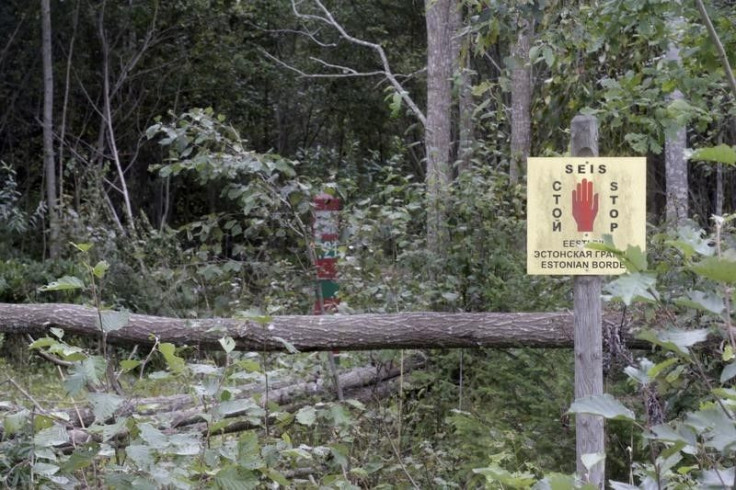Estonian Officer Allegedly Abducted By Russia Sentenced To 15 Years' Hard Labor

MOSCOW (Reuters) - An Estonian police officer, allegedly abducted by Russia in a cross-border raid, was sentenced to 15 years in prison on Wednesday, further stoking tensions between Moscow and the former Soviet republic.
Russia arrested Eston Kohver on espionage charges in September last year, saying the Estonian was caught on Russian territory, but Tallin maintains he was taken at gunpoint at a border crossing.
The sentence will put further strain on already frayed relations between the two countries, which have deteriorated since Russia's annexation of Crimea from Ukraine last year.
"I strongly condemn (the) verdict on Eston Kohver; his illegal detention constitutes a grave violation of international law by the Russian Federation," Estonian Prime Minister Taavi Roivas said on Twitter.
The European Union said Kohver's detention in Russia was illegal and called for his immediate release.
"Mr. Kohver has been deprived of the right to a fair trial: there was no public hearing of the case," EU foreign affairs chief Federica Mogherini said in a statement.
Kohver will serve his sentence in a Russian hard labor camp and be fined 100,000 rubles ($1,525), Interfax news agency quoted his lawyer as saying outside the Pskov regional court, where Estonian and European Union diplomats gathered to protest the conviction.
"Together with our allies and partners, we intend to keep up international pressure until Eston Kohver is released and has returned home to his family," Estonian Foreign Minister Marina Kaljurand said in a statement.
Russia's Federal Security Service (FSB), successor to the Soviet KGB, said Kohver was detained carrying a Taurus handgun with ammunition, 5,000 euros ($5,500) in cash, special equipment for concealed audio recording and documents that "bear evidence of an intelligence mission".
Tallinn said he was taken trying to stop illegal activity on the border when unidentified abductors jammed radio communications and used smoke grenades.
In recent years, the border has seen a number of incidents involving the smuggling of goods, weapons and migrants.
Estonia and other former Soviet republics in the Baltics, which now belong to both the EU and NATO, have urged both organizations to take a tough stance toward Russia over its actions in Ukraine, where the West says Moscow is sending troops across the border to support separatist rebels.
Moscow has repeatedly denied these accusations.
© Copyright IBTimes 2024. All rights reserved.











